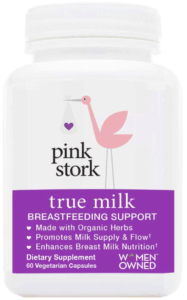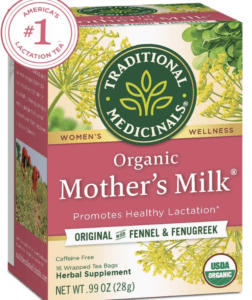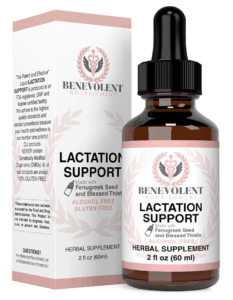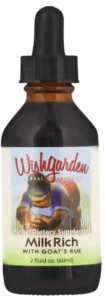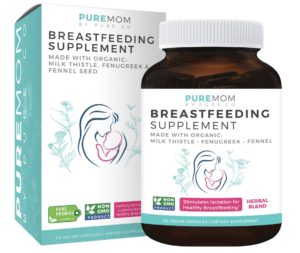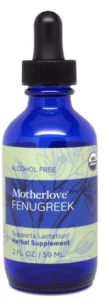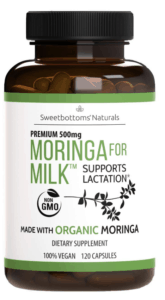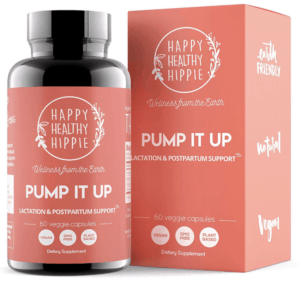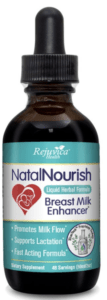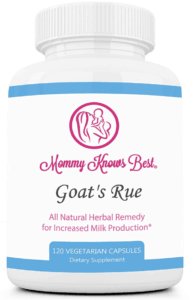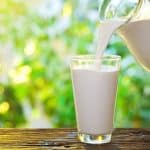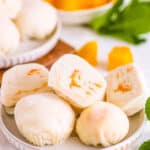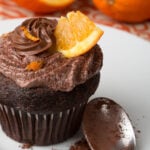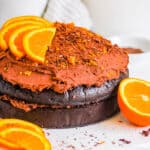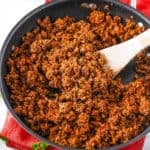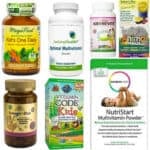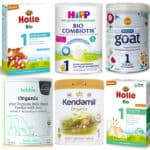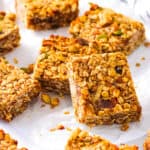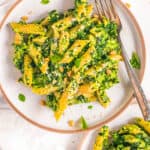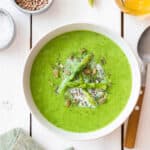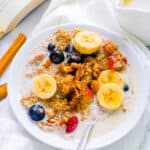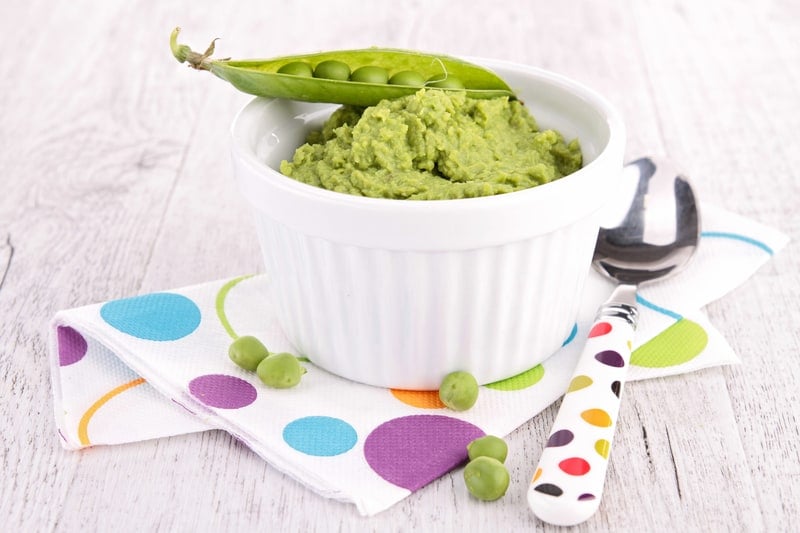Best Lactation Supplements To Increase Milk Supply
This post may contain affiliate links. As an Amazon Associate, I earn from qualifying purchases. Please read my disclosure.Are you a new mom in search of the best lactation supplements? This guide will help you learn what to look for and what to avoid when making a purchase, and outlines my list of the top 10 best lactation supplements available today. You’ll also find out when the best time is to start taking lactation supplements and a few other ways to increase your milk supply.
Becoming a parent is an amazing, transformative experience — filled with a spectrum of emotions, ups and downs. And any new mom knows, there are a ton of decisions thrown at you when you first become a parent. Breastfeeding or bottle feeding? Organic or not-organic? Sleep-training or co-sleeping?
One of the biggest decisions new moms can face is when it comes to feeding. There’s a lot to get used to, as well as potential hiccups that are hard to anticipate ahead of time. There is some evidence to suggest that breast milk can help with cognitive development and that it can boost immunity, but there are a whole host of other studies that show that breastfeeding doesn’t have to be exclusive for babies to reap the benefits, and that the difference between the long term health of breastfed and formula fed babies is negligible. This is all to say, the decision on whether or not to breastfeed should be entirely up to you.
My opinion is that “FED” is best, and that a happy, healthy baby and mom is all that matters. If you are on your breastfeeding journey, you might be wondering how to boost your milk supply or worried about having enough milk — especially if you have an inadequate supply, want to build up milk to freeze/store, or you have a very hungry baby!
Luckily, there are some easy, natural and safe ways to supplement lactation and boost your milk production. But knowing which methods or products to use can be tricky. Not only do these options need to be effective, but they also need to be safe.
That’s where this guide to the best lactation supplements comes in! I’ll go over what to look for and what to avoid in lactation supplements, the top 10 lactation supplements on the market today, and I’ll cover some other important information about when to start taking supplements and other ways to boost your milk supply.
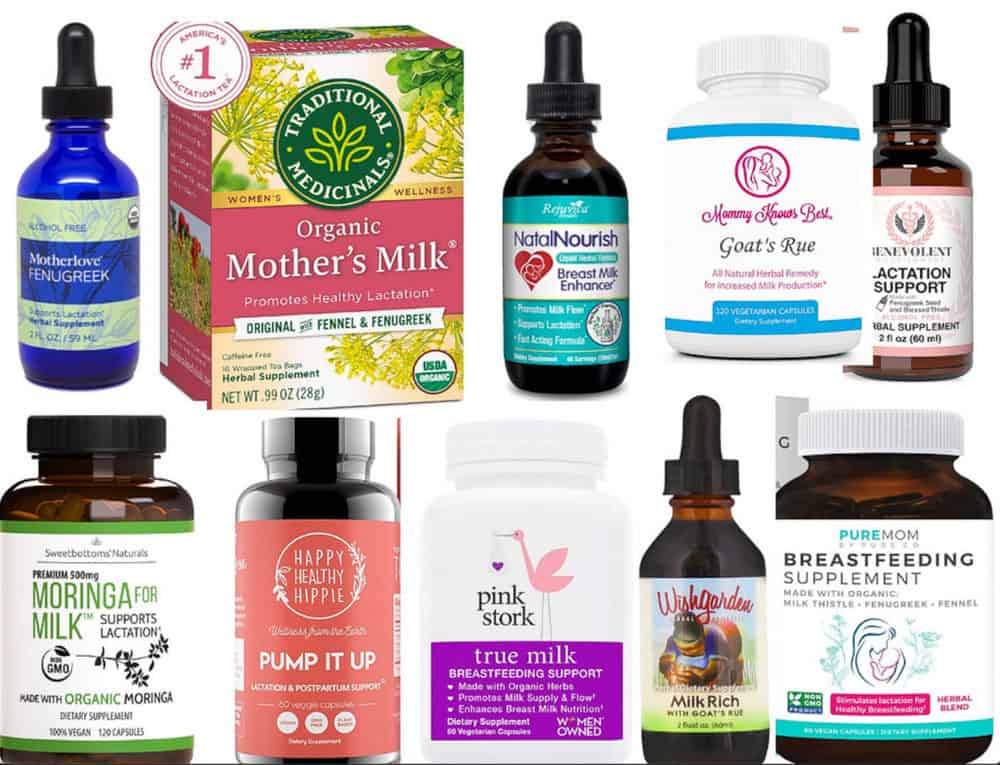
10 Best Lactation Supplements For Nursing Moms
Pink Stork
Pink Stork is a 100% organic, herbal supplement that supports breastfeeding and helps increase milk supply. It is non-GMO, gluten-free, all natural, soy-free, dairy-free and more. In addition to fenugreek and blessed thistle, this supplement also contains potent herbs like fennel (which is often recommended for lactation support) along with alfalfa and milk thistle. It’s also created by a woman-owned business and has garnered hundreds of five-star reviews. Costs $25 for a 30 day supply.
Pros
Cons
Traditional Medicinals Mother’s Milk Tea
If you’re not thrilled about the idea of taking capsules or using a dropper, this lactation tea may appeal to you. It contains an herbal blend of fennel, anise, fenugreek, coriander, lemongrass, and blessed thistle, and many moms swear by it. However, the anise and fennel do give this tea a licorice flavor — so if that doesn’t appeal to you, you might want to stick with flavorless supplements. In addition, this herbal tea also contains spearmint leaf, which could be problematic for nursing moms. Costs $25 for a 30 day supply (assuming you’re drinking the recommended 3 cups per day).
Pros
Cons
Benevolent Nourishment
These organic fenugreek drops are certified organic and are free of fillers, sugars, alcohol, and GMOs. They also contain morgina, blessed thistle seed, goat’s rue, and anise seed — which makes it a good option for moms who want to try it all, as long as no herbal intolerances are discovered. Costs $27 for a 30 day supply.
Pros
Cons
Wish Garden Herbs
If you’re looking for a goat’s rue extract, you might consider trying these. They do contain vegetable glycerine and organic, gluten-free alcohol, though. Still, the company’s commitment to sustainability may be something that sets this product apart from others on this list. Costs $18 for 20-30 servings.
Pros
Cons
Pure Mom
Containing fenugreek, milk thistle, and fennel, this supplement is certified organic and non-GMO. It’s also made in the U.S., gluten-free, and vegan. While many moms find success with this option, it may work best in combination with lactation cookies. Costs $20 for a 30 day supply.
Pros
Cons
MotherLove Fenugreek Drops
A great option for fenugreek drops, this certified organic supplement contains literally nothing else. Their herbal extract is fast-absorbing, which means new moms could start seeing results more quickly. You can also find fenugreek in capsule form if you prefer that. However, if you’ve had no luck with fenugreek in the past, you might want to try a different option. Costs $22 for a 30 day supply.
Pros
Cons
Sweetbottom Naturals – Organic Moringa
These organic moringa capsules contain only moringa leaf, have been proven to increase lactation and don’t contain additives or preservatives — making them safe for both mom and baby. This supplement doesn’t contain fenugreek either, which may mean they’re a viable option for mothers who can’t tolerate that ingredient or who have seen no improvement after taking it. It costs $25 for 1-2 month supply (depending on how many you take per day).
Note: You might have heard that moringa may reduce fertility so not a good idea to take if you’re trying to get pregnant. There is a difference between moringa leaf and the root/bark/flowers. Moringa leaf is a superfood and is safe to use when pregnant. It is the root, bark, and flowers that may not be safe. More info here.
Pros
Cons
Pump It Up
This supplement claims to boost milk supply, improve the symptoms of postpartum stress, and provide colic and gas relief for babies. It’s 100% plant-based but contains none of the main herbs recommended for lactation support (though it does contain chamomile, fennel seed, motherwort, and red raspberry leaf). However, the company does offer a 60-day guarantee. Costs $23 for a 30 day supply.
Pros
Cons
Natal Nourish
These supplemental drops contain fenugreek seed, blessed thistle, anise seed, red raspberry leaf, turmeric, and fennel. The company says the product was created by a trained herbalist in the U.S., which may provide new moms with additional peace of mind. Keep in mind, of course, that products containing multiple ingredients may make it more difficult to ascertain what works (and what doesn’t) for you. Costs $34 for 15-30 day supply depending on frequency of use.
Pros
Cons
Mommy Knows Best Goat’s Rue
Goat’s rue, a middle eastern plant, is thought to be well-tolerated among nursing moms and many have found success by adding it to their routine. However, it’s important to note that the studies performed on goat’s rue have been of questionable quality and control. The National Institutes of Health also notes that goat’s rue could cause hypoglycemia and may be an unwise choice for women taking anti-diabetic medications. This supplement may be worth a try though, as it’s free of eggs, soy, gluten, peanuts, and tree nuts. Costs $20 for 120 capsules. But some moms might need 3 capsules a day to increase supply (which means it costs $20 for a 40 day supply).
Pros
Cons
How Do Lactation Supplements Work?
Lactation supplements work because they are packed with herbal galactagogues. Common galactagogues are typically substances (foods, herbs, etc.) that can help a breastfeeding mother increase her milk supply. For example, oats or oatmeal, yams, beets, carrots, brewer’s yeast, flax seed, dark leafy greens, and green papaya are all considered galactagogue foods.
Lactation supplements contain high doses of galactagogues, so when taken consistently they can help boost milk production for nursing moms.
While there aren’t many scientific studies on traditional galactagogues, and all of the evidence to support the efficacy of herbal supplements in increasing breast milk production comes from anecdotal reports, many new mothers (including myself) will swear by certain supplements as being very effective in addressing milk supply issues.
How Do You Choose The Best Lactation Supplement For You And Your Baby?
There are many considerations when picking a supplement to cause a significant increase in your milk supply. Some of the general guidelines I recommend following are:
- Choosing an organic, non-GMO supplement
- Choosing a supplement free of dairy, soy and major allergens
- No artificial ingredients or fillers added
- Determining whether fenugreek is a good option for you (if you have had sensitivity to it in the past, or you notice digestive discomfort for you or your baby after taking it, you’ll want to switch to a fenugreek free option).
When trying to choose a lactation supplement for you and your baby, there are a few ingredients you should always avoid. These include:
- Heavy metals
- Artificial sweeteners
- Added sugars
- Artificial flavors and colors
- Cannabidiol (CBD)
- Essential oils
- GMOs
- Preservatives and fillers
What Herbs Help Increase Your Milk Supply?
Herbal remedies have been used for centuries to treat all sorts of medical issues. But not all herbs are created equal. Some have virtually no effect at all, while others may work due to the placebo effect. Still others may have a notable impact on milk supply. Some of the best herbs that help increase milk supply include:
- Fenugreek: The most common herb for increasing milk supply. The recommended dose of fenugreek is about 5400-7300 mg/day to help increase breast milk supply. The most common potential side effects include a maple-syrup like smell in your sweat or urine, and some moms complain of digestive discomfort (both of these side effects resolve when the dosage is reduced).
- Blessed Thistle: Works well when paired with fenugreek. Fenugreek and blessed thistle are often cited as the most effective for increasing lactation support.
- Fennel: Commonly used with other herbs. Can help improve the let down effect.
- Goat’s Rue: Related to fenugreek but doesn’t have the maple syrup smell. Note: the fresh leaves are toxic, but the dried leaves (which is what’s in the supplements I recommend) are safe for use.
- Stinging Nettle: High in iron, very nutritious and thought to help stimulate breastmilk production after giving birth.
- Anise Seeds: This dietary supplement is known for its licorice taste, widely considered a galactagogue.
- Moringa: Has multiple benefits including nourishing skin & hair, supporting the liver, digestive support – and has been used in many countries to help stimulate breastmilk production.
- Alfalfa: May stimulate the release of prolactin, a hormone that helps moms produce breastmilk.
- Marshmallow Root: Provides skin & digestive support and may also reduce inflammation (so can counteract side effects from other herbs).
- Shatavari: This herb has been used in India and China for hundreds of years to support a healthy milk supply. It is thought that Shatavari can increase a mother’s milk supply by boosting prolactin levels (which is the hormone that causes a breastfeeding mom to produce milk).
- Note: Herbs like milk thistle, coriander, red raspberry leaf, etc. are often included in lactation supplements but don’t have as direct ties to boosting milk supply (but they are beneficial in other ways like helping to balance hormones or providing liver support)
Keep in mind that nursing moms should actually avoid certain herbs. Parsley, peppermint, sage, oregano, thyme, sorrel, and a number of other herbs have been reported to decrease milk supply. In fact, these herbs may be recommended when moms are dealing with an over-supply of milk or when a baby is being weaned.
When Should You Start Taking Lactation Supplements?
Many new moms may be concerned about the amount of milk they’re producing, especially right after birth. However, it’s essential to note that mature milk production doesn’t usually occur until 30 to 40 hours after delivering the placenta, sometimes longer if you’ve had a c-section. It’s recommended that new moms wait to begin taking lactation supplements until their bodies have naturally adjusted to these needs.
In general, it’s a good idea to refrain from taking lactation supplements for at least five days after delivery. At that point, you may want to consult a lactation consultant or your healthcare provider to determine whether lactation supplements may be necessary. Mothers who have experienced low milk supply with previous babies might want to talk to these aforementioned professionals prior to delivery to develop a potential breastfeeding plan.
Are Lactation Supplements Safe?
Typically yes, they are safe. However, it’s important to remember that safety of the supplements are not regulated by the Food and Drug Administration. In other words, there’s no definitive standard for how much of an ingredient a lactation supplement product might contain.
Moreover, some mothers may experience major improvements after taking a given supplement while others may have an adverse reaction (or no reaction at all) to the same supplement. It’s a good idea to consult a doctor or lactation specialist before trying any supplements at all.
What Else Can You Do To Increase Your Milk Supply Quickly?
Taking lactation supplements can help many moms to increase their milk supply, but supplements aren’t the only option.
You can boost breast milk volume and milk flow by following a frequent nursing schedule, ensuring efficient milk removal by pumping after nursing, “switch nursing”, avoiding pacifiers or other food sources (like formula), or adding in a pumping session in between feeds to make your body think that your baby needs more milk.
You may even want to adjust your sleeping position to increase milk production. It’s also vital for new moms to rest, eat well, and stay hydrated — which can sometimes be impossible, but any rest you can get will help!
Lastly, before taking lactation products, you can also try making recipes for lactation bites, lactation brownies, or these gluten free lactation cookies, which contain brewer’s yeast and other food based galactagogues!
There is no one best way to increase a woman’s milk supply, oftentimes it’s a combination of a breastfeeding supplement + more frequent nursing + nutritious food + healthy habits that does the trick!
10 Best Lactation Supplements, With Key Ingredients Highlighted
It’s hard to pick just one lactation supplement that’s heads and tails above the rest, since different herbs will work well for different moms.
But in the chart below, I did rank the supplements from most beneficial to less beneficial based on: 1) Organic ingredients 2) Variety of herbs included 3) Potency of herbs included.
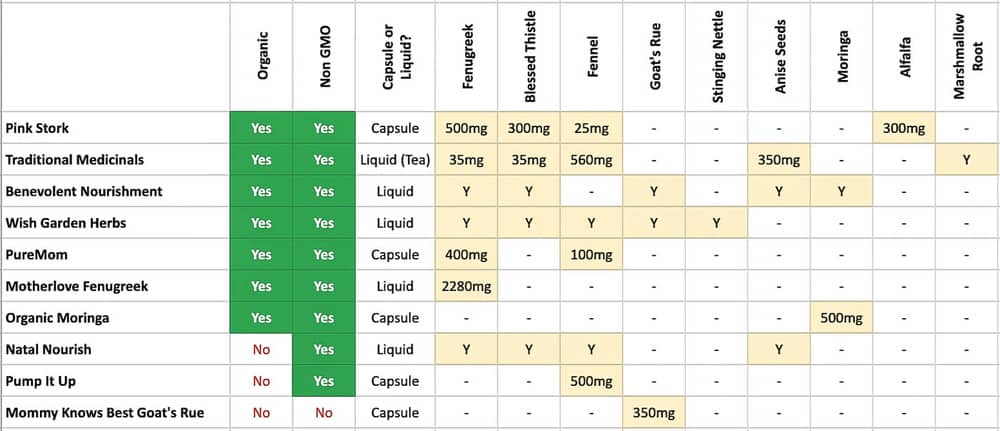
There’s no question that being a parent is one of the most rewarding and challenging jobs you’ll ever have, and given that 3.85 million babies are born annually in the U.S., you are certainly not alone in the adventure! With these tips in mind, you’ll be well on your way to finding a lactation supplement method that will work for you.
Check Out These Other Healthy Food / Grocery Store Guides!
- Best Organic Baby Formula
- Best Multivitamins for Kids
- Best Protein Powders for Women
- Best Protein Powders for Kids
- Healthiest Nut Butters
- Healthiest Bread to eat
- Healthiest Cereal to try
I hope I have thoroughly answered all of your questions and you found this list of the best lactation supplements helpful! If you have any further questions, please leave a comment below – I personally respond to every question I get! You can also FOLLOW ME on FACEBOOK, TWITTER, INSTAGRAM and PINTEREST to see more delicious, healthy, family-friendly food!



